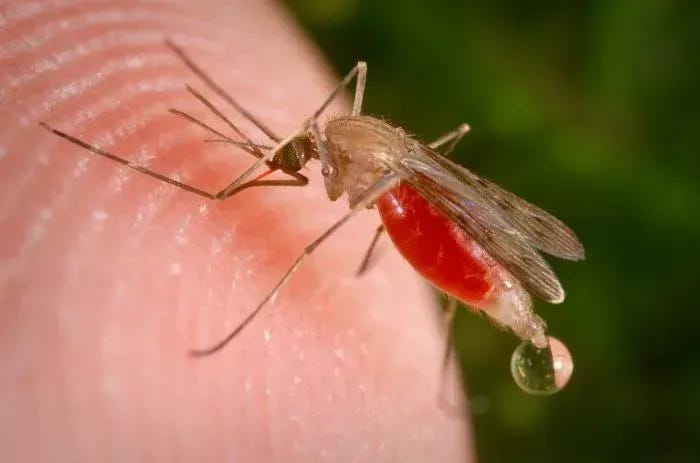Washington state health authorities report investigating a possible autochthonous malaria case in Pierce County.
The case, an East Pierce County woman who has not traveled recently was diagnosed Aug. 2 with malaria.
Federal and state health officials are investigating possible sources of infection. If it’s confirmed that she contracted the parasitic infection in the state, this would be the first known locally acquired case of malaria in Washington.
Health officials note the most likely cause of a locally acquired case is a mosquito biting someone infected with a travel-associated case of malaria, then passing the infection on to this patient.
The patient is receiving treatment and and being monitored. Health officials did not disclose the species of Plasmodium (the agent of malaria) the patient contracted.
“The risk of getting infected with malaria in Pierce County remains very low,” said Dr. James Miller, Tacoma-Pierce County Health Officer. “Malaria is a rare disease overall in the United States—and the vast majority of cases in the United States occur following exposures in countries with ongoing transmission.”
The Tacoma-Pierce County Health Department discussed malaria:
Malaria is a mosquito-borne disease caused by a parasite. It typically causes fever, chills, body aches, headaches, and fatigue. It can also cause nausea, vomiting, and diarrhea. In most cases, the incubation period—the time between infection and start of symptoms—is 7-30 days. Malaria does not spread directly from one person to another.
Malaria can be cured with prescription antimalarial drugs. It can be life-threatening if is not diagnosed and treated quickly.
The U.S. sees about 2,000–2,500 and Washington sees about 20-70 reports of malaria cases each year linked to travel. In 2023, the United States experienced its first locally acquired mosquito-transmitted malaria case in 20 years. Between May 2023–October 2023, 10 cases were reported across four states.
The Anopheles mosquitoes that transmit malaria live across the U.S. If they bite someone infected with malaria, they may become infectious and could transmit the parasite to people in the area.
As part of the investigation, we are working with DOH to implement mosquito trapping and testing. Fortunately, at this time of year mosquito populations in Pierce County are decreasing.
The best way to prevent malaria is to prevent mosquito bites and ensure early diagnosis and treatment of cases in returning travelers. Use an EPA-registered insect repellent and wear long sleeved clothing when spending time in areas with mosquitoes and use screens on windows and doors. Remove and reduce places where mosquitoes can breed by removing or covering sources of standing water like birdbaths, animal troughs, pools, tires, or other places where water may collect.
Travelers to countries where malaria is more common should take steps to prevent acquiring malaria. That sometimes includes taking medications to prevent malaria. Contact a healthcare provider before traveling to see if you need to take medications to prevent malaria. If you develop symptoms of malaria, contact a healthcare provider right away.



